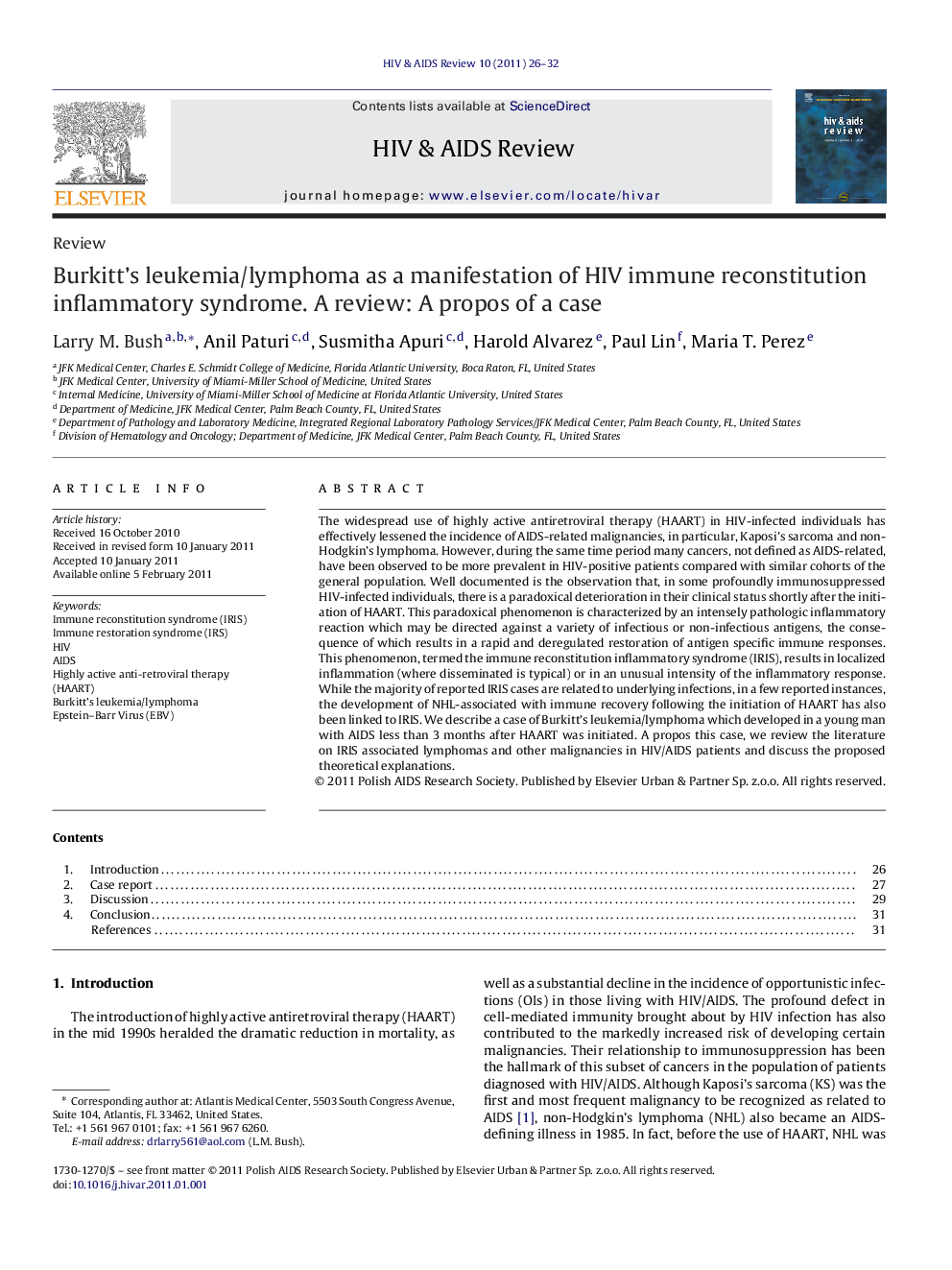| Article ID | Journal | Published Year | Pages | File Type |
|---|---|---|---|---|
| 3332462 | HIV & AIDS Review | 2011 | 7 Pages |
The widespread use of highly active antiretroviral therapy (HAART) in HIV-infected individuals has effectively lessened the incidence of AIDS-related malignancies, in particular, Kaposi's sarcoma and non-Hodgkin's lymphoma. However, during the same time period many cancers, not defined as AIDS-related, have been observed to be more prevalent in HIV-positive patients compared with similar cohorts of the general population. Well documented is the observation that, in some profoundly immunosuppressed HIV-infected individuals, there is a paradoxical deterioration in their clinical status shortly after the initiation of HAART. This paradoxical phenomenon is characterized by an intensely pathologic inflammatory reaction which may be directed against a variety of infectious or non-infectious antigens, the consequence of which results in a rapid and deregulated restoration of antigen specific immune responses. This phenomenon, termed the immune reconstitution inflammatory syndrome (IRIS), results in localized inflammation (where disseminated is typical) or in an unusual intensity of the inflammatory response. While the majority of reported IRIS cases are related to underlying infections, in a few reported instances, the development of NHL-associated with immune recovery following the initiation of HAART has also been linked to IRIS. We describe a case of Burkitt's leukemia/lymphoma which developed in a young man with AIDS less than 3 months after HAART was initiated. A propos this case, we review the literature on IRIS associated lymphomas and other malignancies in HIV/AIDS patients and discuss the proposed theoretical explanations.
